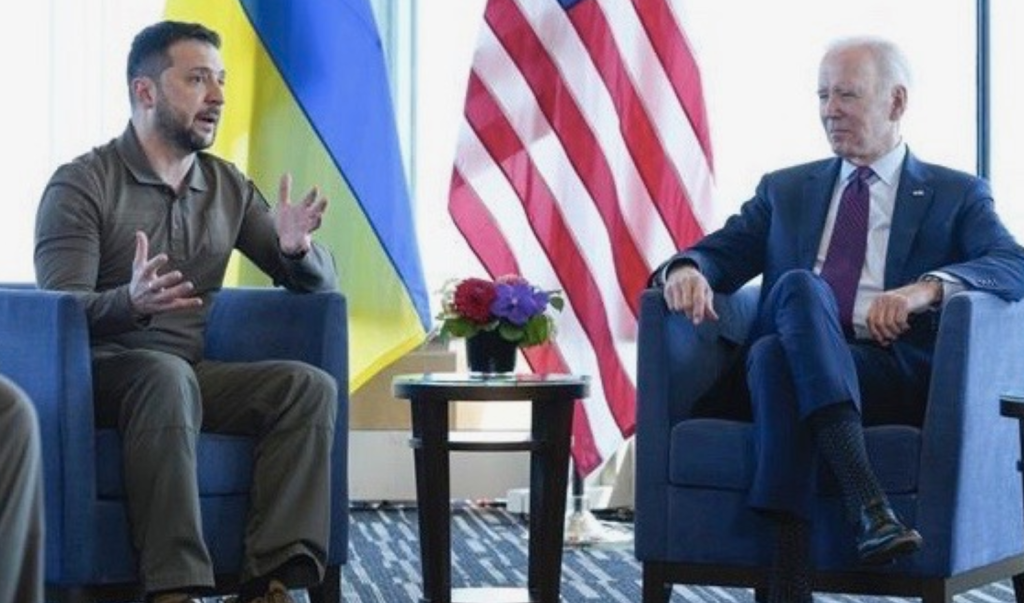

At the second anniversary of the Russia-Ukraine war, an old stance is passé no more
Every war is unique. That makes comparisons difficult. But there are always similarities too, which makes drawing analogies irresistible.
Take Russia’s surprise invasion of Ukraine in February 2022, two years ago. After the early assumption that Russia would cakewalk to Kyiv proved false, analysts began casting about for precedents. Perhaps the Russia-Ukraine War will be like World War I, absent the sudden influx of Americans that tipped the scales in England’s and France’s favor. Or maybe the Iran-Iraq War of the 1980s, a high-casualty grudge match between two relatively equally matched enemies—neither able to gain a decisive advantage over the other, fought to mutual exhaustion. It might be like America’s war in Vietnam, or the Soviet war against the Afghan mujahideen—nuclear-armed high-tech superpowers going up against kinetically less impressive foes that nevertheless far overmatched them in morale and motivation.
It could be like America’s war in Afghanistan—a decades-long struggle that ends in dispirited withdrawal. Russian President Vladimir Putin doesn’t have to send an expeditionary force halfway around the world to do his bidding, as we did, but he’s as inept at winning hearts and minds in Ukraine as we were in Afghanistan.
Which will matter more for the outcome: the stark differences or the grim similarities? Your guess is as good as mine.
Chances are, whatever route this war takes, there will be disappointments galore (like most wars), and many surprises too (like most wars). Keeping our heads—not getting lost in the moment, and assuming the victories or setbacks of the hour are more predictive than they are in any other war—is a large part of the challenge for those of us who observe from afar. It’s true, however, that Ukraine’s prospects of gaining critical foreign aid depend on it offering reasons for hope—in the form of battlefield successes. Just as the prospects of the American revolutionaries of the 1770s did.
Chief of Staff of the U.S. Army George C. Marshall complained bitterly during World War II about the degree to which keeping the American people at home “entertained” sometimes drove Roosevelt’s military strategy. Which of them was wiser is open to debate. Keeping the people who pay for a war on board is critical in a democracy. Letting that dominate strategy can be disastrous.
According to many reports, the U.S. has been pushing Ukraine to be more aggressive than is prudent. Anthony Cordesman—one of our very best analysts of military affairs, who died in January at eighty-four—warned against this in one of his last reports on the Russia-Ukraine War. He considered U.S. efforts “to push Ukraine into new offensives potentially dangerous. If anything, such offensives may lead to higher Ukrainian casualties and consume both its newly trained troops and more advanced supplies of weapons.” The U.S., after all, only attempts such dramatic game-changers after heavy aerial bombardment of enemy positions prior to committing ground forces—think of the weeks of bombing that preceded our 100-hour victory in the 1991 Gulf War. Russian retreats, on the other hand, have actually been strategic and to their advantage. Russia’s missiles strike Ukrainian civilian areas without comparable retaliation. Escalation on Ukraine’s part—the use of F-16s, for example—will only invite comparable escalation on Russia’s part. Neither American prodding nor more sophisticated American weapons will lead to any “major breakthroughs,” Cordesman concluded. Instead, the war is likely to be very long. Ukraine will not gain back all the territory lost since 2014, and it will require economic aid for years to come. Most of all, says Cordesman, NATO will need to plan “to fight a new Cold War by rebuilding its longer-term warfighting and deterrent with total seriousness.”
America’s continued support for Ukraine is very much in doubt. The last time the U.S. supported an armed struggle by a nation bordering Russia politics actually did stop at the border’s edge. President Reagan adopted President Carter’s policy of denying the Soviets a free hand in Afghanistan in the 1980s and Democrats were fully on board, despite their many differences with the president. Reagan’s determination to aid the Afghan rebels “encountered little opposition in Congress” and thus aroused little controversy . In fact, “Congress was continually prodding the C.I.A., the Joint Chiefs of Staff and the State Department to provide more support for the Afghan guerrillas, who limped along with relatively ineffective weapons until they got Stinger antiaircraft missiles in September 1986.” (My emphasis.) Times have clearly changed. Georgia Representative Marjorie Taylor Greene has apparently informed Speaker of the House Mike Johnson that aid for Ukraine will lead her to initiate his removal, a threat that’s not entirely toothless given the amount of churn the Republican leadership has exhibited over the last few months (and years).
How and why the Republicans have recently reversed course from their once reliably hawkish posture towards our enemies—real and imagined—remains a topic of intense investigation. The leadership offered by President Trump is, obviously, a critical component of that change. “It is not the duty of U.S. troops to solve ancient conflicts in faraway lands that many people have never even heard of,” Trump informed the cadets at West Point in 2020. The precision with which Trump echoed British Prime Minister Neville Chamberlain’s assessment of the conflict between Nazi Germany and Czechoslovakia in 1938 as a “quarrel in a faraway country, between people of whom we know nothing” was lost on no one. Most historians believe that had the West stopped Hitler then, World War II could have been avoided. Instead, “Less than two years later, the Nazis were bombing London,” former Secretary of State Madeleine Albright reminded President Trump.
Take the broad view of our current moment. What roused America from its isolationist slumbers of the 1930s? The easy answer is Pearl Harbor. But that’s not all. What sent the U.S. into the world as its self-appointed policeman in the late 1940s was also the devastation of western Europe after World War II, our unmatched economic strength, and our sense of overwhelming military prowess. Both Republicans and Democrats were on the same page: both feared the philosophy, values and ambitions of the communists to an equal degree.
America has long gotten over 9/11, its twenty-first century equivalent to Pearl Harbor. We are not riding high on a wave of taken-for-granted prosperity, and our sense of military superiority has taken more than a few dings. Meanwhile, Europe has stepped up—they’ve given more, together, to Ukraine than the U.S. has. They sense that the U.S.’s self-image as the indispensable nation can’t be assumed anymore.
The world of the 1940s is gone. The events of that decade—which drew America into the world for the following seven decades—and the worldview they created no longer hold sway. That the U.S. would now feel a strong temptation to slink back into its pre-World War II posture is hardly surprising. Superpowers, like empires, don’t last forever. Policemen get old and retire. Or perhaps, as the poet put it, “You can’t be forever blessed.”
John H. Haas teaches U.S. history at Bethel University in Indiana
Photo: Ilia Pitalev – Kommersant Photo/Getty Images